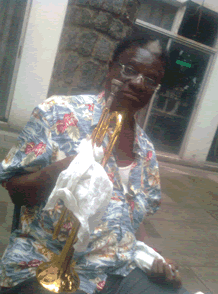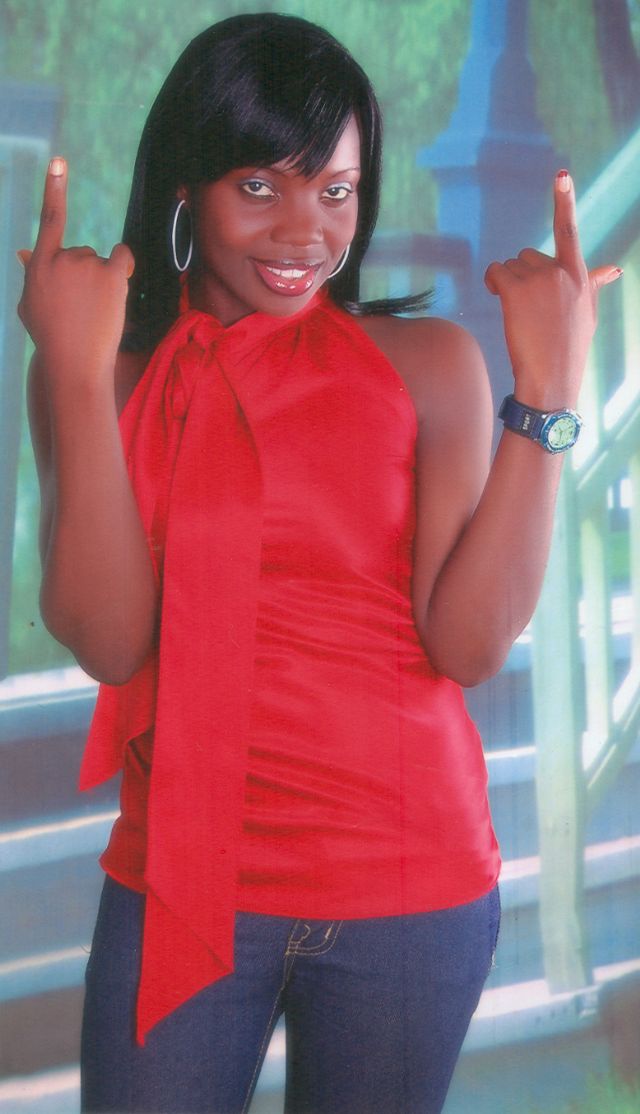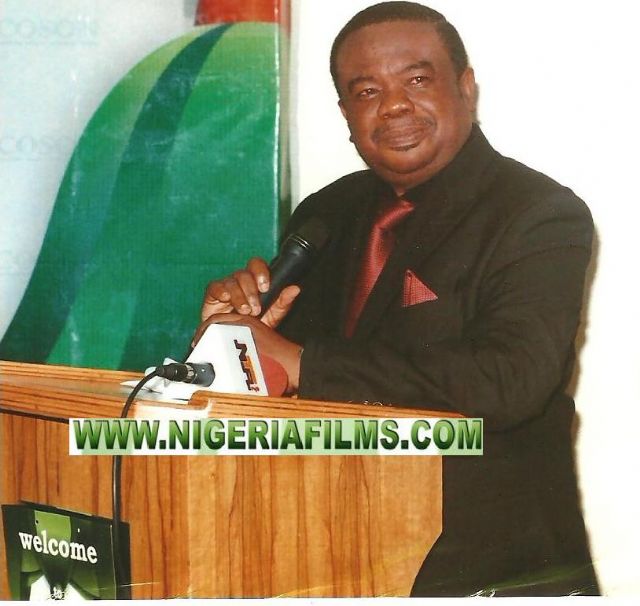
Veteran musician and highlife music maestro Dr. Victor Abimbola Olaiya still stands straight at 79. He clutches his trumpet like a baby and plays with the dexterity of an under 40. He recently spoke to Daily Sun and went down memory lane. Excerpts.
What attracted you to music and why did you take it as a career?
In the first instance, I never wished to make a career out of music but as providence here I am today having taken it as a career. Naturally music runs in the blood of my family. My father was a church organist while my mother was leader of a cultural group. I would say I embraced music not by accident but by design. I really can’t explain how and why.
Why highlife?
In those days there where all brands of music but Fuji didn’t exist then in late 1940’s. What was in existence was Ajiwere and Ajisari, a group of thinkers who would gather during fasting to go from door to door waking people to break their fast. This metamorphosed to Fuji but there was Juju with the likes of Ayinde Bakare then. Juju today has been modernised with varieties such as Afro Juju and the likes. In those days dance bands where the predominant ones with the likes of Chocolate Dandies, Humming Bees, Rhythm Dandies, Nigeria Stage Orchestra, Apata Male Orchestra among others.
I discovered that while I was managing to playing with some bands such as late Prof Samuel Akpabot’s All Stars Orchestra, Nigerian State Orchestra, Humming Bees and Raised Tempo Orchestra, each time we play the hall was always jam-packed because it was highlife. The music was very popular among Lagosians. While I was in the school brass band at African School, Onitsha, each time we travel to Port Harcourt or Asaba to play the floor was usually packed because we played highlife. So it was natural for me to choose highlife. However other genres of music where in existence then such as world, rumba, tango but highlife was the crowd puller.
I remember some of your lyrics like Baby Jowo, what are the circumstances that inspired your lyrics?
I have always said that if one wants to compose a good music, one has to concentrate on making it prophetic, philosophic and educative. That was my aim. If one composes music that is not educative or poetic or that does not convey any sense, it is just a waste of time. In addition any thing that has something to say about women attracts a number of listeners. So I have to sit down and think because I love beautiful things particularly Cherikokos (ladies). I have to carry them along in whatever shape I choose to present my songs. This was what influenced my music.
At that time you were about the most popular musician and this must have endeared you to a lot of women, how did you cope with this?
(Laughs) well I managed to cope with the Cherikokos, I cannot explain how but I try to carry them along in my music. I made my music very appealing to them.
Where you tempted by them in any way and how did you cope?
One must have temptations and one cannot resist all temptations. I cannot say I didn’t have temptations and that I didn’t fall prey to some of them. If I say otherwise then I am not familiar with the truth.
People like you who began music before Nigeria’s Independence where rounded and where skilled in musical instrument, how did you combine composing music and playing instrument?
It has to be absolutely full time because one can get inspiration at any point in time. At such time, one abandons every other thing to improve on the inspiration. I remember on one occasion when we were heading for the Miss Nigeria Pageant in Benin, I was to make a stop at Ondo this was when the Benin Ore road was first constructed. On the steering I received inspiration and immediately I had to pull over to develop what came into my mind. I always carry a pen and I quickly jot down the idea. The band was ahead and where totally oblivious of what was happening with me. Inspiration comes occasionally like that. Like somebody said that genius is one percent inspiration and 99 per cent perspiration. One just has to grab the opportunity when it comes. One of the things I got through such inspiration has always been hit songs. One has to seize the chance or lose the venture. One has to write it down in way one will remember it quickly and develop it under a relax atmosphere.
What about musical instruments?
I started playing from B flat French horn and graduated to b flat trumpet. Although I have played some instruments like b flat bombardin, centurion, cornet and so on. Due to my experience in the school band, I learnt to manipulate various types of instruments as well as arrange them into various parts. After composing, I arrange for the band and I think I am gifted with this part. I recall well that when I had a joint session with the late King E. T Mensah from Ghana, he left the arrangement to me and I had to leave the harmony to him. He is a wonderful harmonizer and reads music better than myself. He was more experienced than I am, he literally came in here packing all the monies in the Nigerian market. His name was on the lips of every one and on our part we tried to constantly strategize to challenge him. Having listened to a number of my compositions, he felt I was gifted in musical arrangement and he left it to me without fear or favour. That is why it is not very easy for bands to play my music correctly. They usually find it quite difficult to copy.
Thank you sir. Here you are today still looking strong and playing music and it has been over seven decades since you started. What is the secret?
The secret is God because nobody can claim monopoly of wisdom. There some glories that one can’t take, it belongs to God almighty. I try to practise and rehearse often. Like the reference I made earlier about genius being 99 per cent perspiration, I would say the secret of my success has been hardwork. Without hardwork and discipline one can’t go far. I would add that 95 per cent of the people in the world don’t think, 4 per cent do feel they think whereas it is only 1 per cent that does the thinking for the whole world. Perhaps I think God has put me among the 1 per cent (laughs).
Are there things you restrain yourself from or discipline yourself from like drinking, smoking etc
I don’t smoke and it has never been a challenge. I wouldn’t say I don’t drink because even if one drinks water, one still drinks! (laughs) I would rather say that I drink moderately and responsibly. I don’t remember finishing a bottle of beer in my life. Over the years, one would have love to know the difference in the tastes of the various brands which made me tasted one or two or three of them to be able to speak among wise men and make one’s contribution.
Do you have a diet plan?
Yes I do have as one is getting older. I will be 80 on the last day of the year, that is, 31st December. One must be able to caution himself as to what to drink, eat or when to go to bed. Everything one has to do as one is getting older has to be done wit restraints, there is no more chance for gallivanting like young man. (laughs)
How did it feel performing during Nigeria’s Independence?
I was specially choosen for the occasion and I recalled that all other bands then protested and wondered why it has to be Victor Olaiya and not and All-Star Band. They demonstrated, carried placards and marched to the House of Representative, then at Race Course, Onikan. The Prime Minister then, late Tafawa Balewa then had to call the Minister for Socials, late J. M Johnson suggesting to him to direct that all other bands should form a coalition band to support me but maintained that the Federal Government’s choice still remained Victor Olaiya. At the end of the day, I was paid about five times what the whole group was paid.
How was your performance at the occasion? Did you had specially composed songs and what numbers did you perform?
Well I recall that I composed specially for the Republic celebrations in 1963 and I think I also composed one for the Independence occasion in 1960. It was a memorable occasion and unforgettable experience.
Sir at that stage did u established Stadium Hotel?
It took me many years to put the structure together. It took the most part of eight years to erect what I now call the ‘ageless Stadium Hotel’. Each time I was not on tour, I would work on it usually when I had the money to do so. Those were times I would embark on a long Nation wide tour from Lagos to Maiduguri to Sokoto. One of the things that also significantly helped me then was my participation with the Miss Nigeria beauty pageant organized by Daily Times of Nigeria. The publicity was very huge and it positively affected my career. I took my music to almost every village and hamlet with complete instruments and a generating set. I was at Ogwuashi-Ukwu, Akwanga as well as villages in Yola, Adamawa, Gombe, Maiduguri, Birni-Kebbi even to Kainji. I took the music to the people and I think this was what made me famous and commercially successful. I realized that not every one can afford to come and hear our music in Lagos that was why we took it to them. And the people received me well even though some don’t understand the language.
You have enjoyed support from government from time of the Nigerian Independence, what was the relationship like and do you still enjoy the same till date?
Well by proclamation and popular choice, it was clear and undisputable that during Independence era that I was the most popular musician of the time. It was unanimous and my sales records are there to confirm this. I didn’t know how the government came about my choice and I never influence the decision in anyway. I recall a night, this was some days before Ghana got independence where nine ministers, four from Ghana and five from Nigeria danced to my music at Cool Cats Inn along Apogbon, Lagos.
The next day, Daily Service carried it in their newspaper because this was unprecedented. It was one of highpoints of my career to have about nine top African ministers dancing to my music. There are two people who made the occasion successful, one of them is late Hamilton Kweku Vining who donated the Vining Centre to Lagos State. He was a very rich contractor who executed the Apapa Dock contract. He was one of the prime supporters of my music. Along with the J. M Johnson, the Minister for Socials, they pull their weight together by inviting their friends.
Sir can you remember the peak or highpoints of your career?
Wouldn’t you regard this as a question of opinion because I don’t know whether it was when I was chosen to performed at Nigeria’s Independence or when I was sent to Congo during the civil war to entertain the United Nations troops. Another one was when I entertained the Nigerian troops during the civil war at a division in Makurdi on the invitation of Brigadier Benjamin Adekunle. The audience was made up of 10, 000 troops and they had to clear the bush. Meanwhile this was at the thick of the war period but the Biafrans where oblivious of the happening, perhaps we would have become history now if they had a tip-off. I like to say that I went to Czechoslovakia to represent Africa during the first Jazz International Festival. From there I went to London where I happened to be the first all-black band to appear on BBC TV (I am not sure of the date again, probably 1950 something).
The discrimination was so much that if a white person spots a black man from afar he or she will stay away from that path! Should I say that I was favoured being the most popular band having being familiar to State House functions. We were singled out among all state house bands, this was during Sir James Robertson’s time. We had one friend of the band then, a private secretary to Sir Robertson, he comes regularly to Cool Cats Inn to dance. There were other celebrities like M.S Adewale, Sir Bank Anthony among others. I don’t who among them recommended us to the state house located in Marina. It was from this platform that we were recommended to the BBC in London. When we got to London, we got support from people like late Eddie Fadairo, late Gbajabiamila and a host of other Nigerians took my letter to BBC and we were given only two minutes to perform. This was all I had to incorporate local instruments such as shekere with foreign musical instruments. This was something they were not familiar with but they were very impressed with my performance.
Is there any of your offsprings towing your path?
Most of my children are into music but not on full time basis, they have their own careers but they also have interest in higlife. Kayode Olaiya although a Banker plays trumpet and vocals, Bidemi Olaiya who works in Oil Sector plays Tenor Saxophone and vocals, Abiodun also in Oil Sector plays Trumpet and vocals, Toba plays guitar. All of them play piano. Yejide plays clarinet, Dupe plays guitar. All of them are graduates. We have just started highlife all stars club every first Sunday of the month by 4pm till about 11pm. We recently started this and it attracts band leaders, top musicians, graduates and lecturers come from within and outside Lagos.
What would you like to be remembered for?
My highlife music music.
What is your advice to the up and coming artistes?
My advice to them is to be hardworking, devoted to their art and leave all glories to God almighty.
Sir do you find time to listen to some of them?
I do listen to them but with a kind of bias. There is nothing strange or bad in what they are doing. They have chosen their paths and they are developing on a different dimension.
What is your opinion about future of highlife music? It appears the younger generation are not interested in this genre.
Predominantly I think the reason for this is that highlife is not an easy music to come by. Highlife is the lingua franca of this nation and whatever any musician sings, he or she must borrow a leaf from highlife. I don’t think highlife can never die because other genres of music seem to have borrow influence in one way or the other from highlife music. This is why highlife has been and remains the lingua franca of this nation. For it I live and for it I die.



















